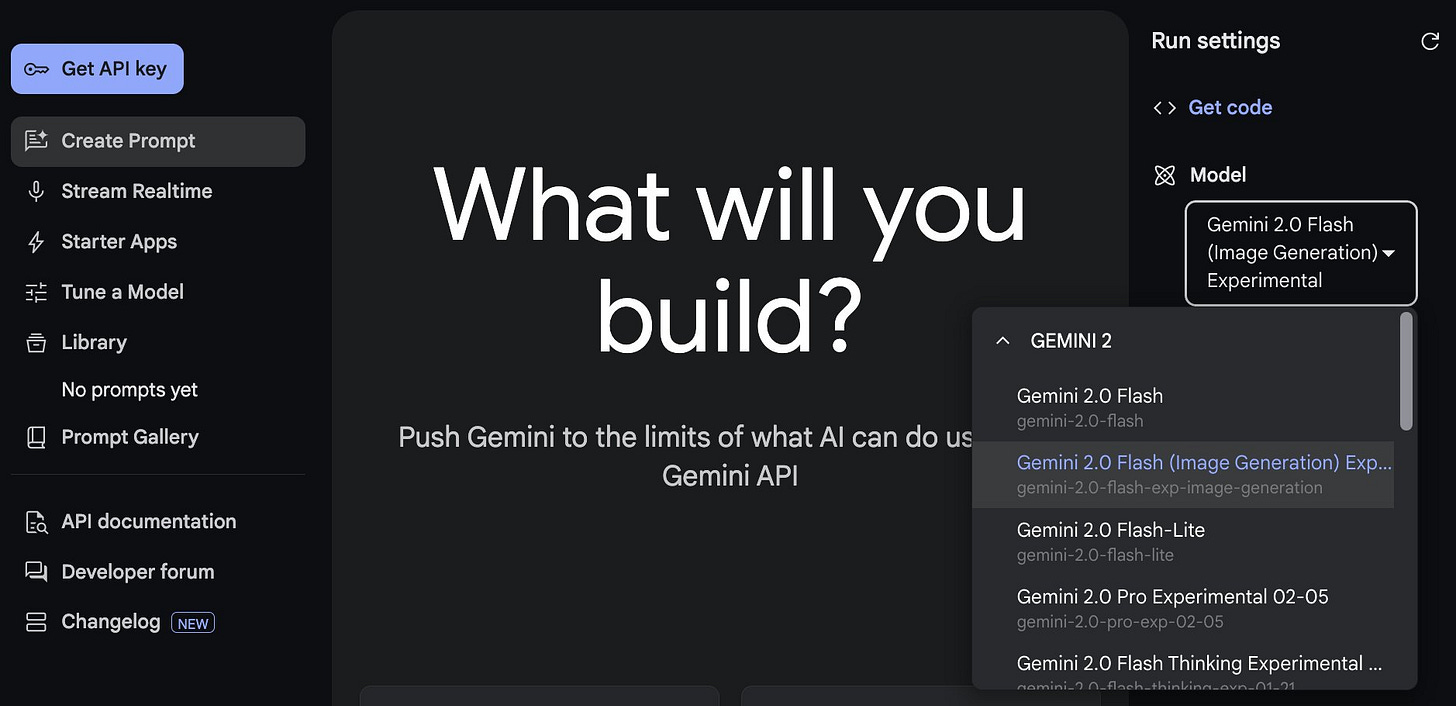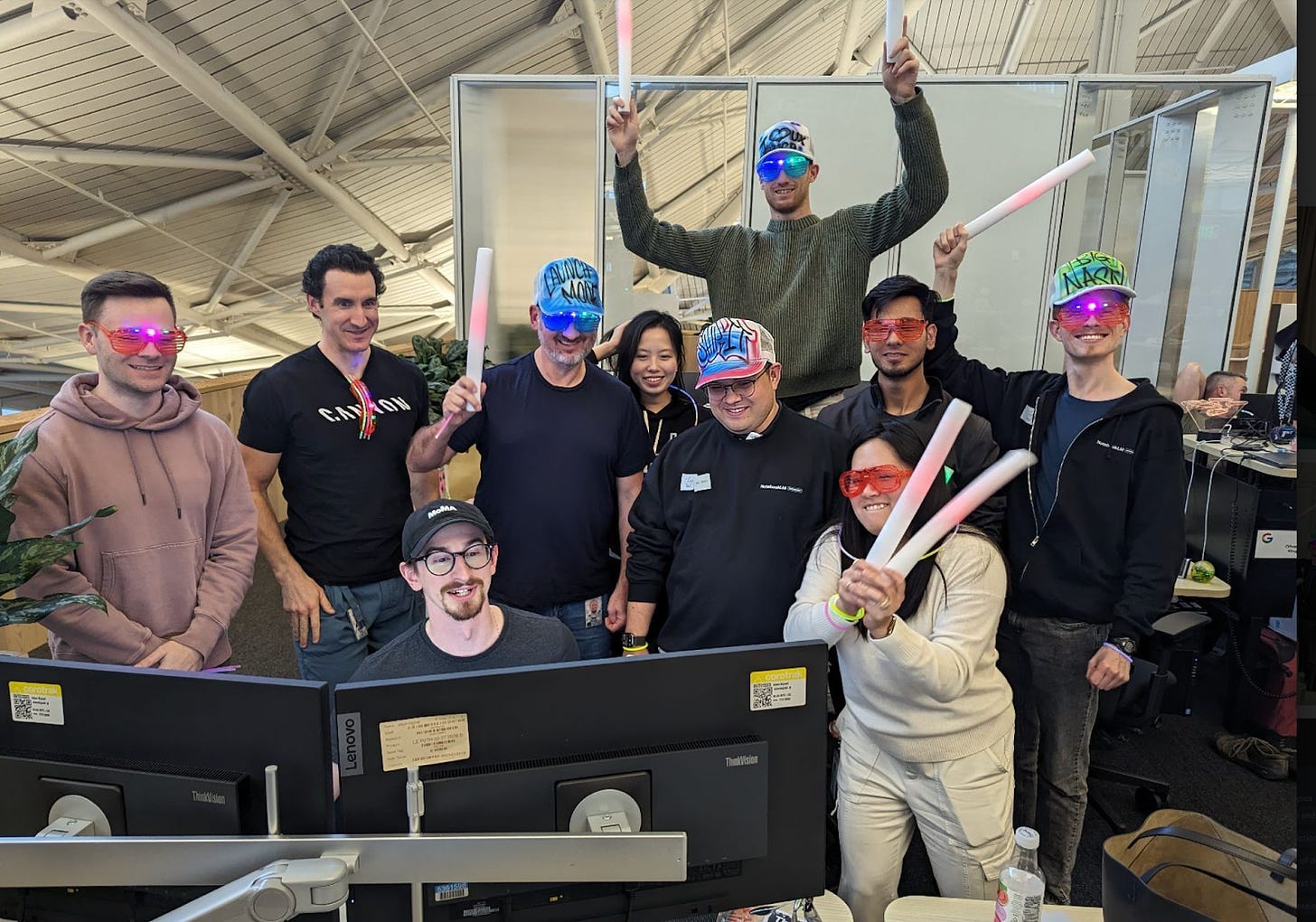Why are Google's AI Products So Frustrating to Use?
It’s baffling how confusing Google’s AI product experience is despite their state of the art tech
Dear subscribers,
Today, I want to share a rant about Google's AI products.
It’s baffling how confusing Google’s AI UX is despite their state of the art tech.
Before I start ranting, I think there are exceptional people at Google like Logan who build with users. But they seem to be the exception. So let’s talk about:
Why is Google Gemini so fragmented?
Does the Google Workspace team use their own AI products?
Who is YouTube's AI features really built for?
Is Google's product culture holding back its AI tech?
This post is brought to you by…beehiiv
beehiiv has evolved from a newsletter platform to be the one place to build your content business. It now offers a no-code website builder, an ad network that matches you with global brands like Nike and Netflix, and more. Join big names like Arnold Schwarzenegger and Russell Westbrook and start building on beehiiv today.
Why is Google Gemini so fragmented?
OpenAI and Anthropic each have a single product offering: ChatGPT or Claude.
But Google has created a confusing split:
A barebones Gemini with fewer capabilities than competitors.
An overstuffed AI Studio that mixes consumer and developer use cases.
Let me give you a specific example:
Gemini launched best-in-class image editing a week ago that lets anyone edit specific parts of an image. But to access it, I have to:
Know to use AI Studio instead of regular Gemini
Know to select "Gemini 1.5 Flash Image Generation (Experimental)" as the model
Know that Google's image model can edit images directly
It’s baffling that Google decided to launch this feature in AI Studio instead of regular Gemini. In contrast, OpenAI shipped its new image editing feature to ChatGPT yesterday and has taken the world by storm:
Google seems to put everything behind “labs” and “experimental" labels because they lack the conviction to release new features to everyone.
Why is an amazing consumer image editing feature buried in an UX that also includes API keys? I don’t get it.
Does the Google Workspace team use their own AI products?
I use Google Docs every day, but I almost never feel the need to use its AI features:
It makes me wonder — are the teams who built these features actually dogfooding them in their daily work?
For example, PMs live in Google Docs writing PRDs and managing stakeholder comments. An obvious feature would be to use AI to summarize all the comments. But it's mysteriously absent from the AI options above.
Another basic missing feature is the ability to paste examples of my best writing into Google Docs AI. Imagine how powerful it would be if I could share my best PRDs before asking Docs AI to generate a new one with me. Instead, I have to copy everything into Claude or ChatGPT. I'm not alone here:
When people have to copy and paste from Google Docs to other AI products instead of using Docs’ native AI features, something is clearly wrong.
Who is YouTube's AI features really built for?
Let's close by talking about AI and YouTube.
One of my most common AI workflows is pasting in a YouTube transcript into Claude or ChatGPT to extract a concise summary. But since both Gemini and YouTube are owned by Google, I should be able to paste a YouTube link into Gemini directly to get the summary. It’s baffling that this doesn’t work.
Another example is YouTube thumbnails. If you're a YouTuber, you know that thumbnails are critical — creators spend hundreds of dollars making them. Google has an "inspiration" tab in YouTube Studio that uses AI generates thumbnails, but the results ignore all thumbnail best practices:
No person's face
Text is barely visible
Generic backgrounds blend together
If the PM in charge of this feature was also a YouTube creator, I don’t think they would let this ship:
Is Google's product culture holding back its AI tech?
Last year, I interviewed Raiza, the PM behind Google’s breakout AI hit — NotebookLM. A recap of how Raiza and team made NotebookLM a success:
Build with users, not for them. “I wanted a Discord community for NotebookLM. People in Google responded, 'What's Discord? Why not a Google Group?' But I persisted, and now we have 60,000+ users giving us invaluable feedback.”
Meetings are spent building, not talking about building. “We’re breaking the mold for how product works at Google. We're focused relentlessly on shipping quickly. It's easier not to ship than to do it, especially at a large company.”
Share information in concentric circles. ““I only write when I must. When you’re moving fast, things get outdated quickly, and having to keep many documents up to date will just slow us down.”
Sadly, Raiza and the core NotebookLM team left Google shortly afterwards.
Of course, there are still many talented people at Google. But I rarely see them engaging with users on X or other platforms. To put it simply:
If you're building AI products without talking to users or dogfooding your products every single day, you're probably not going to make it.
Wrap up
To wrap up this rant, here are some constructive suggestions for Google:
Build in public with users. Listen to and respond to user feedback on social.
Embrace dogfooding. Start using your product to solve your own problems.
Have conviction. Stop hiding behind "labs" labels and decision by committee. Have a sense of urgency to ship great products to users as quickly as possible.
Yesterday’s Gemini 2.5 launch was encouraging because Sundar specifically highlighted a desire to move quicker:
Google has incredible tech and distribution. But even the most advanced AI is useless if users can't figure out how to use it. I’m rooting for them to succeed.












I'm glad you wrote this. I am STILL constantly pasting rewritten email text into Gmail. The prompt interface in Gmail consistently fails basic prompts. So my workflow is: Screen shot the thread into GPT or Claude, type a very short query, paste back into Gmail, remove formatting, send. Do I really need to write my own agent to do this or will someone at Gmail fix their broken, terrible composer? I could also rant on GSheets AI, which gives me "can't do that" more than it does something useful.
As a former Google Workspace eng director I have to sadly agree with all the broken user experiences you pointed out here and have a few of my own pet peeves. There is a lot Google can do with AI. I hope they deliver!